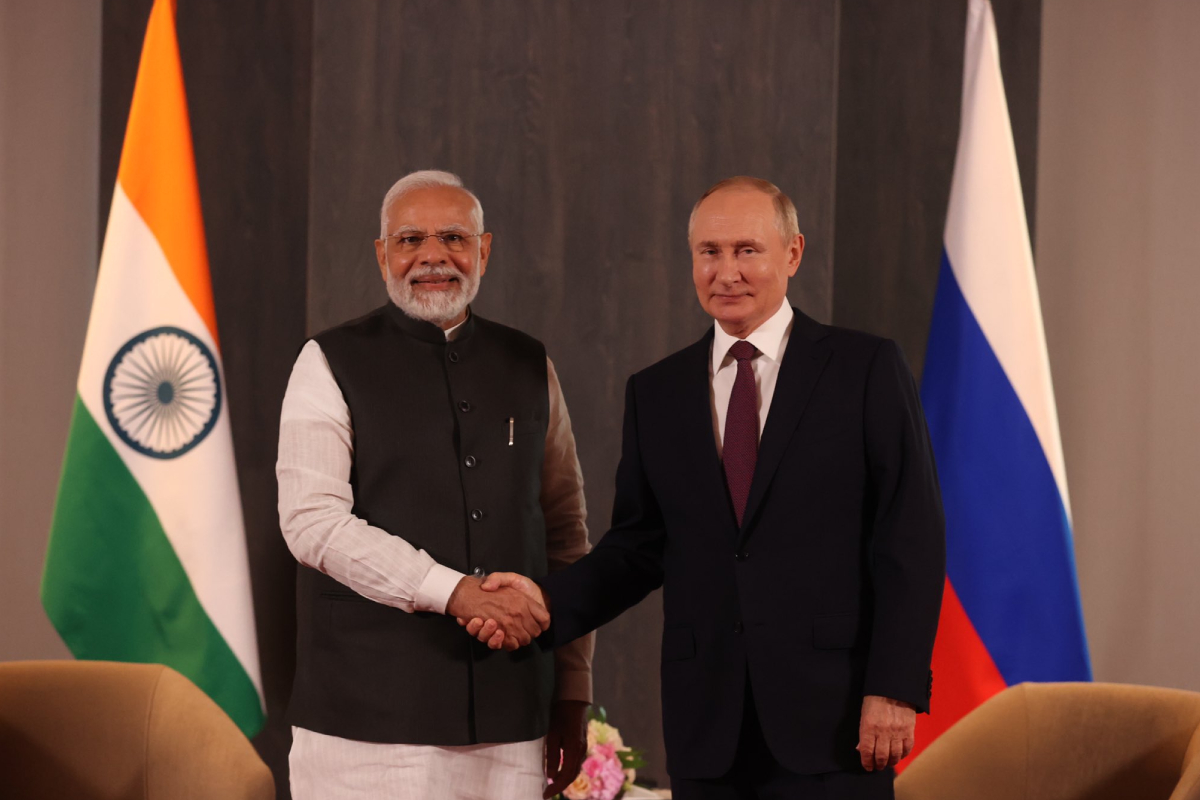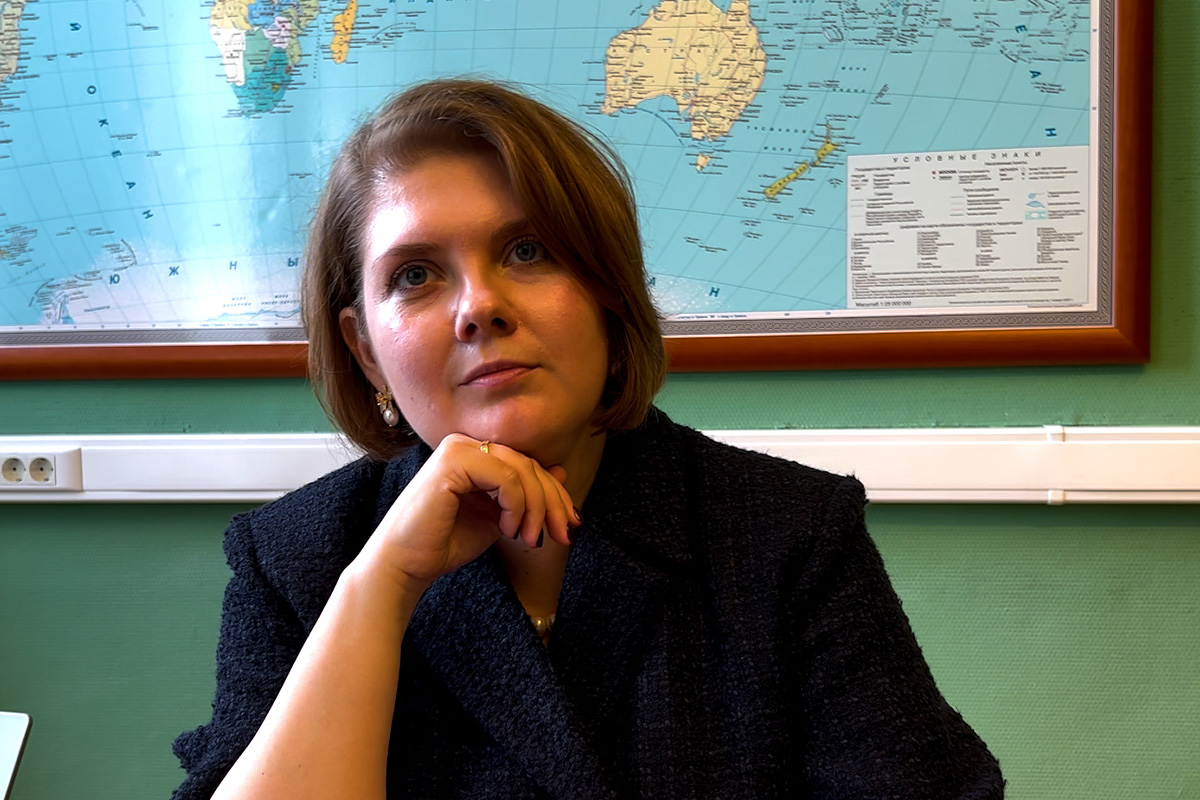Against the backdrop of the conflict in Ukraine, the recently concluded Shanghai Cooperation Organisation Summit can herald a change in the world order, feels Russian scholar Anastasia Likhacheva.
In a chat with The New Indian in Moscow, the Dean of the Faculty of World Economy and International Affairs, HSE University, said Samarkand can herald a new order that promotes multipolarity.
The noted scholar also felt that Asia will unite against China if it tries to become a unilateral leader.
An edited excerpt from the interaction:
Aarti Tikoo: (Russian) President (Vladimir) Putin and Indian Prime Minister Narendra Modi met in Samarkand. They also attended the Shanghai Cooperation Organization meeting, where Chinese President Xi Jinping was also present. What do you think is the significance of this meeting in Samarkand while there’s a war going on in Ukraine?
Anastasia Likhacheva: The significance of this meeting is very high. As we can remember, the history of big conferences of the 20th century, like Yalta, Tehran, etc., where the contours of the new order were discussed.
I think that some hints of the coming order are also discussed now and some accounts about what we understand as multipolarity. Because it’s very favourable to all other powers except the United States.
AT: But at the same time, we are seeing that the West has taken a very tough stand against Russia.
AL: Yes, I would say it’s pretty clear now that the relations between Russia and the West are in the phase of hybrid war. And the more we proceed in time, the less hybrid it becomes, and the more of an old-school style of war we see. And unfortunately, I, and my colleagues, see that the risks of a big military confrontation between Russia and the West are extremely high.
We can’t imagine a full-scale nuclear war between Russia and the United States because it would mean the end of the world as we know it. But on the other hand, we see all the steps towards this phase.
AT: So, you are agreeing that there will be an escalation of a military confrontation between Russia and the West?
AL: Well, I would love to see any sign that we are moving in another direction, but I can’t.
AT: Which means, you’re saying, that the war in Ukraine will continue and will become more aggressive?
AL: I wouldn’t neglect the chance that a direct military clash between Russia and the Western sides could take place outside of Ukraine.
Because of the recent comments of the United States command, they will supply another kind of weapons to Ukraine. And the reverse comment of Russian officials that it will mean that the United States is on which side of the conflict.
The way these weapons get into Ukraine, through Europe, all makes the situation much more dangerous than half a year ago.

AT: Can Russia sustain the pressure of US sanctions? Because everybody’s saying that the Russian economy is being affected. Some people have predicted that it is going to take Russia back by 30 years, economically.
AL: Russia sustained 30 years ago, while the whole collapse of the system of common economy was much deeper, we had the country that was disrupted into 16 pieces and so far so on.
My particular opinion, especially regarding sanctions, is that almost any country can sustain if North Korea can sustain (economic sanctions). The question is how to balance the strategy of survival with the strategy of development.
What we see is that the situation in the global economy is getting much worse. And if we speak about the situation in Europe and the United States in terms of inflation, it’s not easy as well. So, it’s not a question of the exact figure whether Russian GDP drops by 7.6 per cent or by 3.4 per cent.
Some sanctions have strong economic effects. There are sanctions with social impact that could be felt but not so much in economic terms.
AT: And in this entire scenario, where do you see China and India for that matter? Because as of today, they are standing by Russia, even as they are balancing their relationship with the West.
AL: Russian officials now see India and China as rising bulls of power, rising poles of economic development, and potential economic partners for Russia. It means that many representatives of the Russian elite, the Russian managerial community and Russian business, have to go through a very tough and deep transformation of their mindset.
I would say that it’s very important to remember to go beyond these trade statistics. It’s not just the supply of food or energy goods, the supply of energy security, food security, and due to that, social security as well, because of what we observe now in Sri Lanka.
But for the Russian elite to transform their mindset, to see the world map, is a big one. It’s very hard. When we studied geography at school, we did these country maps. And for generations, we had the map of the world and it was like one-quarter big, particularly the map of Europe. We never had a map of Asia.
That’s a very deep, deeply rooted asymmetry of world understanding. And now the way China and India behave in this situation is a very important trigger to change this mindset.
AT: And China hasn’t done anything as of today except for perhaps buying more Russian energy, probably coal mostly, and oil to some extent in discounted oil. Are there more expectations from China?
AL: We recently did very interesting research based on statistics and figures, not on some declarations and quotes. And we did some research on logistics. How it is changing between Russia and China. The cooperation is very intense, but of course, it transforms if we speak about so-called global Chinese companies.
The importance of local Chinese companies is pretty big for the Russian market. They are interested in cooperation. The Russians are very interested in cooperation. But it needs time to settle into this new infrastructure.
And also speaking about Russian, and Indian economic cooperation, we have to accept that the old school image of fruitful international cooperation, we have a beautiful forum where we have a nice declaration, a great concert and party, press releases about new memorandums of understanding and agreements for millions and millions of intentions of investment, is over because even if this happens, it’s not a good idea to promote it so widely.
So, to analyse what’s going on, we have to adjust a bit to our understanding of how we evaluate fruitful economic cooperation under new circumstances.
AT: If China at the moment decides to invade Taiwan and make it its integral part, do you think that Russia would come to Chinese aid?
AL: Well, I think that if China decides to go this way, they will have to rely on their efforts, just like Russia. Dealing with the Ukrainian issue, Russia did not ask for Chinese aid. When we saw a string of comments in Western media that China didn’t provide aid, there was no hint that Russia asked for it. So, I think that if China decides to deal with Taiwan by any means in the state, they will rely on any means that they control.
AT: With a weaker America, are we now saying that China has taken over as if not the global leader, but at least Asia’s uncontested leader?
AF: Strategically, while the American economy is still strong and very well-funded from all over the world, this regular trade deficit is well-known. So, it’s still there. It was there. It’s not the key market.
China is a rising leader. It’s obvious. But I’m pretty much persuaded that if China decides to become the unilateral leader of Asia, it would immediately lead to the very joint unification of all other Asian states being afraid of one rising leader. Because nobody’s interested in changing one leader to another leader.
And we see, of course, the rising Chinese activity, especially economic activity in the region. But at the same time, we see at least an attempt multiplied by Russian Air Force and Indian efforts to keep an option of alternative development of the system in the greater Eurasian region, not just in Asia, based on issues, based on BRICS formats, and based on the strengthening of Russian-Indian relations.
It all favours strategic security in the Eurasian region, thanks to the problems that we see on the way.

















